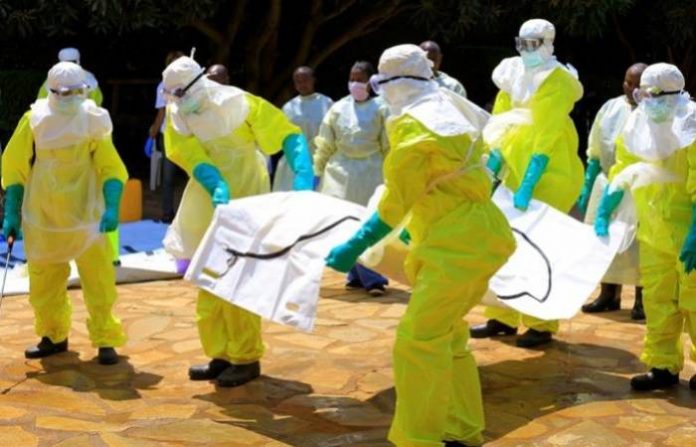WHO Warns That Ebola Could Breach DRC’s Borders Unless Attacks Stop

The World Health Organization (WHO) has warned it may not be possible to contain the Democratic Republic of the Congo’s (DRC) latest Ebola outbreak to two affected provinces in the country’s east if violent attacks on health workers and treatment centres continue.
In a statement issued on Friday, WHO said unless the targeting of response activities was ended it was “unlikely” the virus would “remain successfully contained” in North Kivu and Ituri, which combined, border Rwanda, Uganda and South Sudan.
The current outbreak is the second worst in recorded history and has killed 1 105 people so far, with a volatile security situation in the region and widespread community distrust complicating efforts to end the nine-month-old epidemic.
Earlier this week, fighters from the armed Mai-Mai rebel group attacked a treatment centre in the town of Butembo at the epicentre of the crisis.
The assault came after a burial team was “violently attacked” on May 3 after they interred an Ebola victim in the town of Katwa, east of Butembo, WHO said, adding it was forced to halt response activities in Butembo and surrounding areas for five days due to the insecurity.
“The ongoing violent attacks sow fear, perpetuate mistrust, and further compound the multitude of challenges already faced by frontline health care workers,” the organisation said.
Decades of violence
Eastern DRC has witnessed decades of violence, with scores of armed groups operating throughout the region, which has historically been neglected by the central government in Kinshasa.
In addition to the risks posed to health workers by armed groups active in the area, there has also been widespread community mistrust over the Ebola outbreak, with segments of the local population believing it was fabricated for the financial gain of business-owning local elites or to further destabilise the area.
“The security challenges are two-fold: Armed groups that have been present in the region for decades, and community hostility, which has now morphed from targeting facilities to targeting response workers,” said Whitney Elmer, DRC director for US-based NGO Mercy Corps, in a statement.
“The impact of the rise in violence is clear; security incidents affect response activities. The virus does not take a break – after every interruption in activities, there is an increase in Ebola infections,” Elmer added.
More than 100 attacks on Ebola treatment centres and health workers have been recorded since the beginning of the year, according to the WHO.
In April, heavily armed assailants raided a hospital in Butembo and killed Richard Mouzoko, a Cameroonian WHO doctor working on the Ebola response.
The assault came after unidentified attackers in February torched two Doctors Without Borders’ (MSF) treatment facilities in North Kivu, prompting the organisation to suspend operations in the area.


Share your thoughts